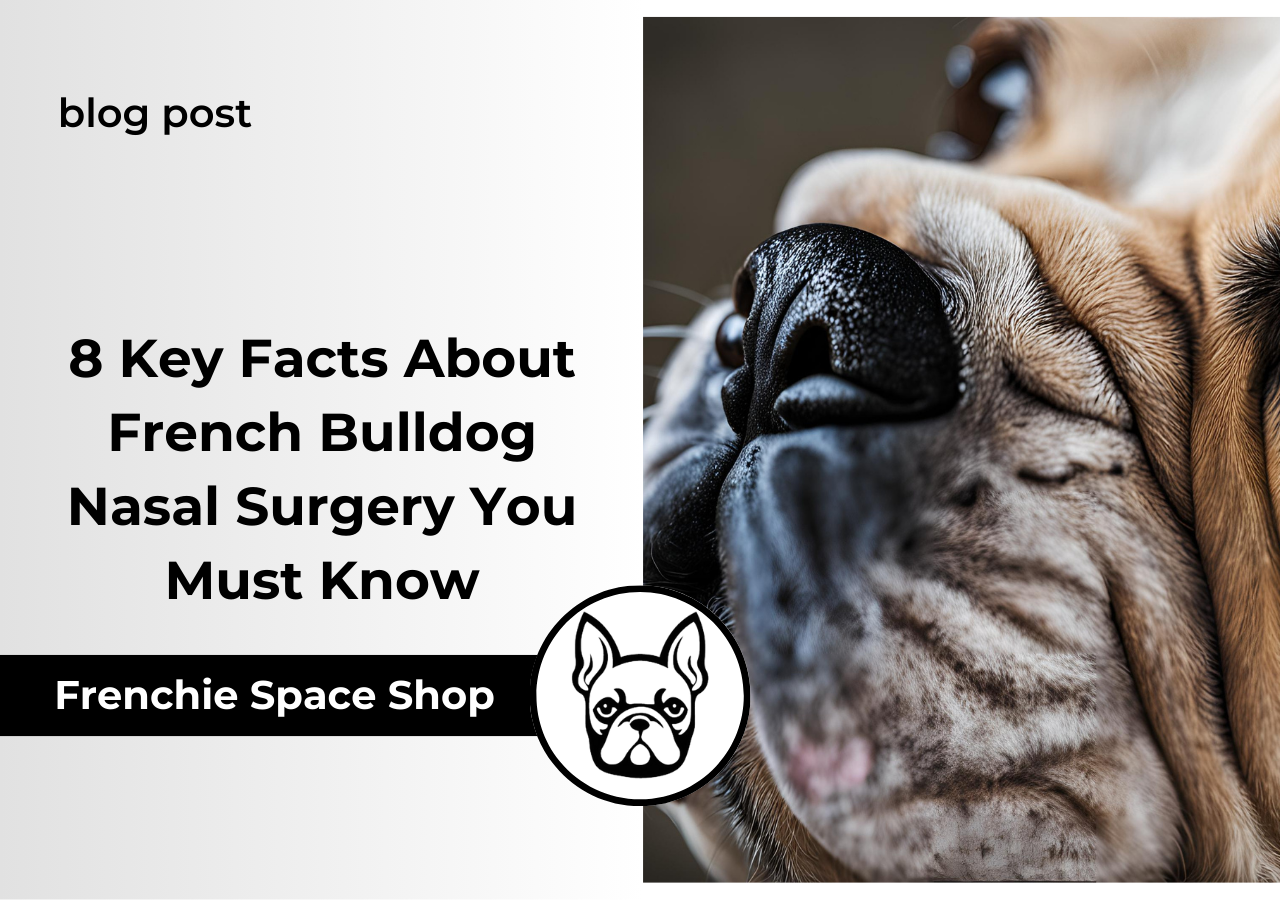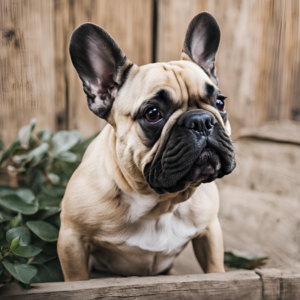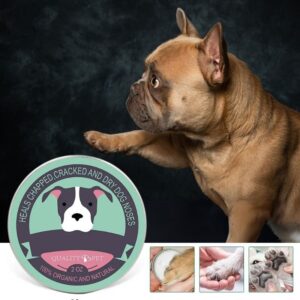8 Key Facts About French Bulldog Nasal Surgery You Must Know

French Bulldogs are adorable, snuggly, and full of personality, but let’s face it: their noses weren’t exactly designed with efficiency in mind. In this post, we’ll reveal everything you need to know about the French Bulldog nasal surgery, including what it is, why it’s needed, what the recovery looks like, and the typical cost of nasal surgery for French Bulldogs.
If you’ve noticed your Frenchie struggling to breathe, snoring like a freight train, or having a tough time keeping up during playtime, you’re not alone. These issues often stem from their characteristic pinched nose, or more specifically, a condition called stenotic nares.
Why Do French Bulldogs Struggle to Breathe?
The main reason French Bulldogs have breathing troubles is their anatomy. They are a brachycephalic breed which means they have short noses and flat faces. While their squishy faces are adorable they come with a whole host of respiratory problems. The most common issues are:
- Stenotic nares: This is another name for narrow nostrils. Dogs with this condition have to work much harder to get air into their lungs. Imagine breathing through a tiny straw all the time—tiring right?
- Elongated soft palate: Many Bulldogs French Bulldogs have a soft palate that’s too long for their short skull. This blocks the airway and makes breathing harder.
- Pinched nose: You’ve seen it on your own pup—a pinched stenotic nose on a Frenchie that’s cute but doesn’t do them any favors in the breathing department.
What Is French Bulldog Nasal Surgery?
Nasal surgery for French Bulldogs is a corrective procedure designed to widen their narrow nostrils and improve airflow. The surgery typically involves fixing stenotic nares and, in some cases, addressing related issues like an elongated soft palate.
If your Frenchie has been diagnosed with a pinched narrow nose, this surgery could be a game-changer for them. Think of it as giving them a chance to breathe freely for the first time. The procedure is sometimes referred to as Bulldog pinched narrow nose surgery or Bulldog elongated stenotic nares surgery, depending on the specific issues being addressed.
How To Know If My French Bulldog Needs a Nose Surgery?
It’s hard to tell if your French Bulldog needs nose surgery as their breathing issues can vary in severity. But, there are signs and symptoms to look out for. They will tell you if your pup is struggling and may need nasal surgery. Here’s how to check:
1. Observe Their Breathing
- Heavy Breathing at Rest: If your Frenchie sounds like Darth Vader even when they’re just lounging around, it’s stenotic nares or another airway obstruction.
- Noisy Breathing: Wheezing, snorting, or loud breathing is normal in Bulldogs but if it’s persistent it’s a bigger problem.
2. Watch Their Energy Levels
- Fatigue During Exercise: Dogs love to exercise but if your Frenchie gets tired quickly or can’t catch their breath during playtime it means they’re not getting enough oxygen because of a pinched stenotic nose.
- Avoidance of Exercise: Some Frenchies will naturally avoid running or jumping because breathing is too hard for them.
3. Check for Snoring and Sleep Issues
- Loud, Chronic Snoring: Occasional snoring is normal but excessive snoring—especially if it’s disrupting their sleep—means elongated soft palate or narrow nostrils in French Bulldogs.
- Sleep Apnea: If your Frenchie wakes up or gasps for air while sleeping frequently this is a red flag.
4. Check Their Nostrils
- Pinched Appearance: If their nostrils look very narrow or collapse in when they breathe they have stenotic nares.
- Flare During Breathing: If your dog has to flare their nostrils just to get air in it’s a sign surgery may help.
5. Check Their Eating and Drinking Habits
- Difficulty Eating or Drinking: Some French Bulldogs with severe airway issues can’t eat or drink comfortably because they have to pause to catch their breath. To help your bulldog breathe easier, we recommend you to buy him/her a quality anti-choke feeding bowl. Make sure your pup also drinks water from a no-spill water bowl that will teach him/her not to inhale air while drinking.
- Choking or Gagging: This could be related to an elongated soft palate. This body part can be quite big in Frenchies and causes breathing issues especially in cold weather.
6. Respiratory Issues
- Frequent Infections: Dogs with narrow nostrils get frequent respiratory infections because of restricted airflow and poor ventilation in their nasal passages.
- Coughing or Gagging: Persistent coughing could indicate that the airway is compromised.
7. Heat Intolerance
- Struggling in Hot Weather: French Bulldogs already have a hard time regulating their temperature, but breathing difficulties can make this much worse. If your dog overheats easily, it could be due to limited airflow caused by pinched narrow nose surgery needs.
8. Vet’s Diagnosis
Ultimately, your veterinarian is the best person to determine if your Frenchie needs surgery. Here’s how they’ll assess:
- Physical Examination: The vet will examine your dog’s nostrils, throat, and overall airway structure.
- Airway Scope or X-Ray: If needed, they may perform imaging or use a scope to check for obstructions like an elongated soft palate.
- Oxygen Levels: They may measure your dog’s blood oxygen levels to determine if their breathing is compromised.
The Procedure: What Happens During French Bulldog Nasal Surgery?
Here’s a general idea of what’s involved:
- Stenotic Nares Correction: The surgeon will remove small wedges of tissue from the nose to widen the narrow nostrils in French Bulldogs. This opens up the airway so your dog can breathe much easier.
- Soft Palate Resection (if needed): If your Frenchie has a long soft palate, the surgeon may trim it to prevent it from blocking the airway.
- Laryngeal Saccules Removal (if needed): In severe cases, the laryngeal saccules may also need to be removed to help with airflow.
The surgery is done under general anesthesia so your pup will be asleep and pain free during the procedure.
French Bulldog Nasal Surgery Recovery
After the surgery your Frenchie will need some downtime to recover. Here’s what to expect during the French Bulldog nasal surgery recovery period:
- Immediate Post-Op: Your pup will be groggy from the anesthesia and will probably need to stay at the vet’s office for monitoring.
- Pain Management: Vets will prescribe pain medication to keep your dog comfortable.
- Diet: Soft foods for a few days to avoid straining the surgical area.
- Restricted Activity: You’ll need to keep your dog quiet for a week or two. No zoomies or roughhousing—sorry, pups!
- Follow-Ups: Regular check-ins with your vet to make sure everything is healing as it should.
Most dogs recover quickly and you’ll see a big difference in their breathing once they’re fully healed.
French Bulldog Nasal Surgery Cost
The cost of nasal surgery for French Bulldogs can vary depending on where you live, how severe the condition is and if additional procedures (like soft palate surgery) are needed. On average you can expect to pay between $500 to $3,000.
That’s a lot of money, but you have to weigh the cost against the benefits. For many Frenchie owners the improved quality of life and reduced risk of complications is worth it.
How to Prepare for the French Bulldog Surgery?
If you’ve decided to go ahead with French Bulldog nose surgery, here’s how to prepare:
- Choose a Skilled Surgeon: Look for a veterinarian with experience in brachycephalic breeds. This ensures your dog is in capable hands.
- Pre-Surgical Testing: Your vet will likely perform bloodwork and other tests to make sure your dog is healthy enough for anesthesia.
- Plan for Recovery Time: Arrange your schedule so you can be home to care for your Frenchie during the recovery period.
Real Talk: My Experience with Nasal Surgery for French Bulldogs
When I first learned about pinched nose in Bulldogs and French Bulldogs, I thought it was just a cute quirk. But after adopting a Frenchie named Louie, I quickly realized how much of a challenge it could be. Louie’s snoring was so loud that I had to wear earplugs to sleep, and he’d get winded after just a few minutes of fetch.
After discussing it with my vet, I decided to go ahead with the surgery. The cost of nasal surgery for French Bulldogs was a bit daunting, but I couldn’t stand to see him struggle anymore. The recovery process wasn’t without its challenges, but the results were amazing. Louie now breathes quietly, has way more energy, and seems so much happier overall.
FAQs About French Bulldog Nasal Surgery
1. Is nasal surgery safe for French Bulldogs?
Yes, the surgery is generally safe when performed by an experienced veterinarian. While there are always risks with anesthesia, the benefits usually far outweigh them.
2. Can French Bulldogs live without the surgery?
Some can, but they may suffer from ongoing discomfort, reduced quality of life, and a higher risk of respiratory crises. In severe cases, untreated narrow nostrils in French Bulldogs can lead to life-threatening complications.
3. How long does the recovery take?
Most dogs recover within 1-2 weeks, but full healing may take up to a month. To help your Frenchie’s nose recover faster, you can apply on it a nose balm. So-called nose butters are specially-formulated to help heal your dog’s nose. Our French Bulldog Nose & Paw Balm is completely safe for use and will help that tiny body part stay hydrated.
French Bulldog Nasal Surgery: Wrapping Up
If your Frenchie is struggling with a pinched stenotic nose, narrow nostrils, or other breathing issues, French Bulldog nasal surgery can be a life-changing procedure. While the cost of nasal surgery for French Bulldogs might give you pause, the improvement in their quality of life is often priceless.
Seeing your pup take deep, effortless breaths for the first time is a moment you’ll never forget. So, if you’re on the fence, consult your vet and take the first step toward helping your Frenchie breathe easier. They’ll thank you for it with every happy, snore-free sigh.
READ ALSO: Kennel Cough in French Bulldogs: How To Treat It?
Can French Bulldogs Give Birth Naturally? Top 4 Things To Know
How to Solve Hyperkeratosis in French Bulldogs: A Complete Guide








 French Bulldog Jackets & Coats
French Bulldog Jackets & Coats French Bulldog Dresses & Skirts
French Bulldog Dresses & Skirts French Bulldog Hoodies
French Bulldog Hoodies French Bulldog Sweaters
French Bulldog Sweaters French Bulldog Shirts
French Bulldog Shirts French Bulldog Pajamas
French Bulldog Pajamas French Bulldog Costumes
French Bulldog Costumes French Bulldog Life Jackets
French Bulldog Life Jackets

 French Bulldog Collars
French Bulldog Collars French Bulldog Harness
French Bulldog Harness
 French Bulldog Backpacks
French Bulldog Backpacks








2 thoughts on “8 Key Facts About French Bulldog Nasal Surgery You Must Know”